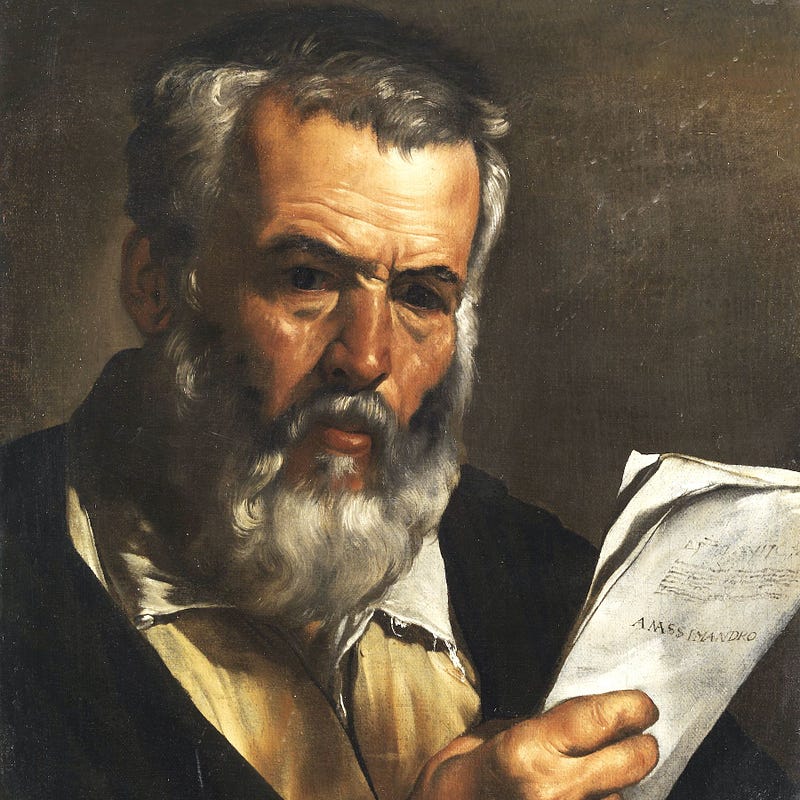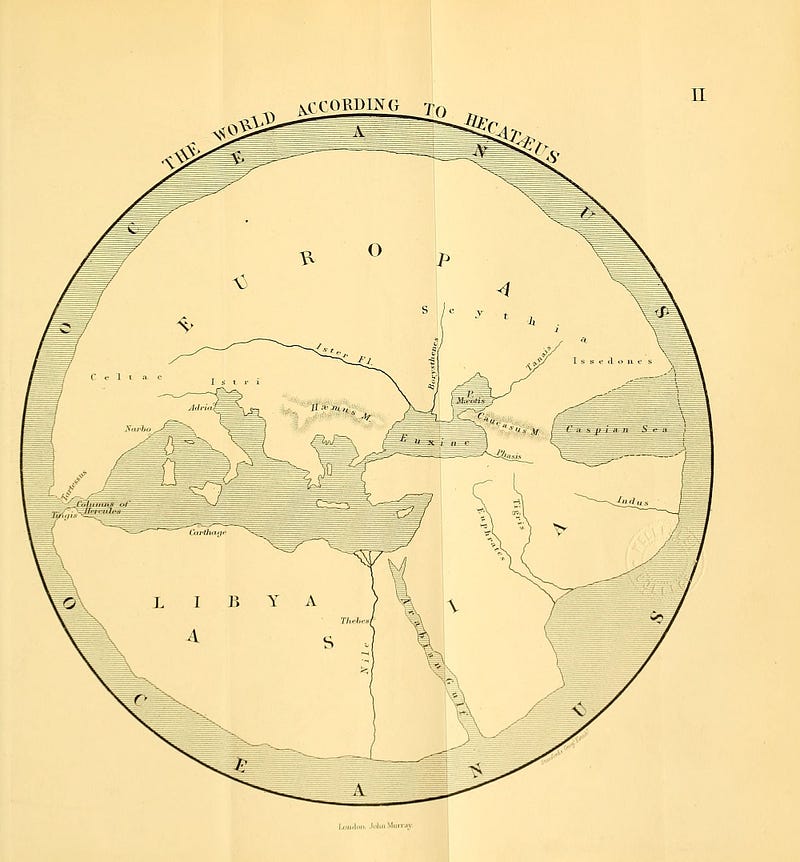Anaximander: The Pioneer of Scientific Thought
Written on
Chapter 1: The Life of Anaximander
Anaximander, a significant figure in ancient philosophy, was born in Miletus around 610 BCE. He is believed to have been a student of Thales, another prominent philosopher. Anaximander's inquiries revolved around the concepts of creation and destruction within nature, and he is often regarded as one of the earliest scientists. Physicist Carlo Rovelli has referred to Anaximander as "the first scientist," emphasizing his role in establishing the frameworks for various sciences such as physics, geography, meteorology, and biology. His work catalyzed a shift in how humanity approached knowledge, moving away from unquestioned "certainties" towards a more scientific mindset.
"This perspective laid the foundation for a reevaluation of the cosmos, steering humanity towards a quest for understanding."
Section 1.1: Written Philosophy
Anaximander is notable for being the first Greek thinker known to have documented his philosophical ideas, primarily in a work called On Nature. Regrettably, this book has not endured through time, leaving only a handful of fragments.
Subsection 1.1.1: A Broad Spectrum of Interests
His insatiable curiosity is evident in the wide array of subjects he tackled, ranging from astronomy to biology. On Nature served as an early attempt to systematically observe and analyze the world and the transformative processes that govern it.

Section 1.2: Maps and Exploration
Anaximander was also known for his adventurous spirit. He reportedly traveled to Sparta and may have founded a colony in Apollonia, now known as Sozopol, Bulgaria. Additionally, he is credited with creating one of the earliest maps of the known world. An ancient source states:
"Anaximander of Miletus, a student of Thales, was the first to draw the inhabited world on a tablet; later, Hecataeus of Miletus refined it for greater accuracy."
If this map ever existed, it has unfortunately been lost to history. However, Hecataeus, who followed Anaximander, is said to have improved upon his work, producing the definitive ancient Greek map.

Chapter 2: Anaximander's Philosophical Contributions
In the video "How Philosophy Started," we explore the origins of philosophical thought, including Anaximander's pivotal role in shaping early scientific inquiry.
Anaximander followed Thales's belief that beneath the complex diversity of existence lies a simpler, fundamental principle known as arche—the Greek term for "origin" or "beginning." While Thales identified this principle with water, Anaximander posited a more abstract concept, which he termed apeiron, meaning "the boundless."
Section 2.1: The Concept of the Boundless
Thales's assertion that water was the basis of all things, while straightforward, is often seen as limited. In contrast, Anaximander's apeiron has sparked numerous interpretations throughout history. Some later thinkers suggest that this principle encompasses the processes of generation, existence, and destruction, serving as the unchanging foundation of all transformations.
One interpretation suggests that Anaximander viewed the apeiron not as a tangible entity but as a characteristic of nature itself, emphasizing the boundless creativity inherent in the universe.
The video "Philosophy 2 ANAXIMANDER" delves into Anaximander's theories and their implications for understanding nature's processes and creative forces.
Section 2.2: Nature as a Creative Process
In ancient Greek thought, the term physis—often translated as "nature"—originally referred to the growth of plants. Early philosophers expanded this to encompass all aspects of existence as a dynamic process. If we adopt this understanding, Anaximander's view of the apeiron can be interpreted as a statement about the universe’s boundless creative potential. He suggests that while individual entities may be born and perish, the underlying creative force remains constant and ever-present, fueling the continuous cycle of change.
Further Reading
Carlo Rovelli's The First Scientist: Anaximander and his Legacy (Westholme Publishing, 2007) is a compelling read for those interested in Anaximander's influence.
For a detailed examination of Anaximander's notion of apeiron as a creative power, consider Apeiron: Anaximander on Generation and Destruction by Radim Ko?andrle and Dirk L. Couprie (Springer, 2017).
Join Looking for Wisdom
Are you puzzled by Confucius? Confounded by Socrates? Mystified by Plato? Looking for Wisdom brings philosophical insights directly to you...
join.lookingforwisdom.com
Philosopher File is a series of articles focused on historical and contemporary philosophers, brought to you by Looking for Wisdom. Subscribe at LookingforWisdom.com for philosophical insights delivered straight to your inbox!